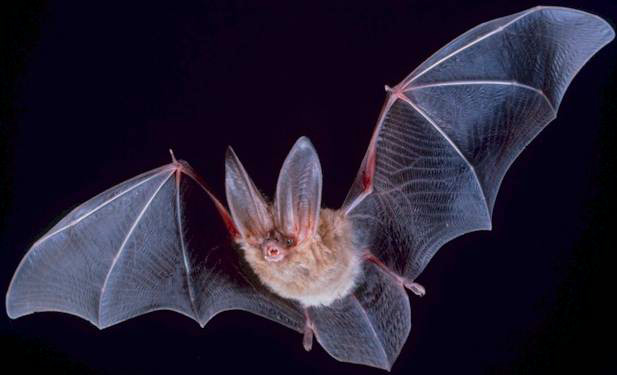Health News Roundup: Bat meat still popular in Indonesia; WHO experts arrive in China to probe coronavirus and more

Following is a summary of current health news briefs.
Bat meat still popular in parts of Indonesia, despite coronavirus fears
Bat meat is still popular in some parts of Indonesia, despite research suggesting the coronavirus spreading from China might have originated in bats before being passed on to humans. Bats are traditionally eaten by the Minahasan people from North Sulawesi in the form of a curry-like dish called Paniki. Whole bats are used in Paniki, including the head and wings.
Mubadala to significantly increase investment in life sciences, medical technology
Abu Dhabi state investor Mubadala will significantly increase investment in life sciences and medical technology as it sees the healthcare sector as profitable, its group chief executive said on Tuesday. "You'll see us significantly increase our investment in that space," Khaldoon Khalifa al-Mubarak told an investment conference in Abu Dhabi.
China reports record daily virus death toll, but new cases fall
China reported 108 new coronavirus deaths on Tuesday, a daily record, bringing the total number of people killed in the country to 1,016, but the number of new cases fell. There were 2,478 new confirmed cases on the mainland on Feb. 10, down from 3,062 on the previous day, bringing the total to 42,638, the National Health Commission said.
Novartis lung cancer drug gets priority U.S. review
Novartis has won fast-track U.S. regulatory review for capmatinib (INC280) in a hard-to-treat form of lung cancer, the Swiss drugmaker said on Tuesday. Capmatinib is a MET inhibitor being evaluated as a treatment for first-line and previously treated patients with locally advanced or metastatic MET exon 14 skipping (METex14) mutated non-small cell lung cancer.
The advance team of WHO experts arrive in China to probe coronavirus
An advance team of World Health Organization medical experts arrived in China on Monday to help investigate the coronavirus outbreak, WHO chief Tedros Adhanom Ghebreyesus said. Tedros, who met Chinese President Xi Jinping in Beijing last month, returned with an agreement on sending an international mission. It took nearly two weeks to get the green light from the Chinese government on the team, led by Canadian emergency expert Dr. Bruce Aylward.
Countries rush to build diagnostic capacity as coronavirus spreads
A week ago, only two laboratories in Africa could diagnose the novel coronavirus that originated in China and is rapidly spreading around the world. As of Sunday, the World Health Organization (WHO) expected every nation in Africa to be able to diagnose the disease. The rush reflects a global push for diagnostic capabilities, particularly in developing countries, in hopes of averting a global pandemic. But it is being slowed by a desperate need for virus samples necessary to validate the tests.
Japan's halt of regular HPV vaccine to cause thousands of cancer deaths: study
A decision by Japan to stop recommending adolescent girls receive an HPV vaccination will likely result in almost 11,000 deaths from cervical cancer if it is not reversed, according to a study in a prestigious medical journal. The HPV vaccine has been a political lightning rod in Japan, where claims of side effects prompted the government to halt active recommendation of the shots in June 2013.
Novacyt biotech company says winning race for high-speed virus test
Franco-British biotech company Novacyt says it can offer a coronavirus test that is faster than rival methods by focusing on a narrow sequence of DNA coding, as it fights stiff competition to turn the outbreak into a business opportunity. In an appeal for sharing virus samples and speeding up research into drugs, vaccines, and diagnostics, the World Health Organization on Tuesday said China's coronavirus outbreak posed a "very grave threat for the rest of the world".
Here is what WHO experts are watching on the coronavirus' spread
The World Health Organization (WHO) is tracking the epidemic of the new coronavirus in China and how it is spread abroad, as its advance team of international experts travels there to help investigate the outbreak. Here are some issues that WHO epidemiologists are probing to deepen understanding of the virus, believed to have jumped the species barrier at a seafood market in Wuhan in December, to help accelerate the development of drugs, diagnostics, and vaccines.
China's Wuhan aims to test all suspected cases of coronavirus by tomorrow
China's Wuhan city, the epicenter of the coronavirus outbreak, has not been able to confirm all existing suspected cases of the coronavirus despite a rush to speed up testing, the city's Communist Party Secretary told a news conference on Monday. Ma Guoqiang said the Wuhan government would, however, aim to test all suspected cases by Tuesday. There have been growing complaints that many patients in the city of 11 million have not been tested or admitted for full-time treatment due to the pressure on medical resources.
(With inputs from agencies.)
ALSO READ
Biden and Japan's Kishida forge new partnership, eyeing China and Russia
Joe Biden hosts Japan's PM at White House, in strong message to China over policies in Indo-Pacific
Japanese Prime Minister Fumio Kishida to speak to Congress as doubts linger over American global leadership
US, Japan signal support for Texas high-speed rail plan
EXPLAINER-Why is Japan seeking a summit with nuclear-armed North Korea?










